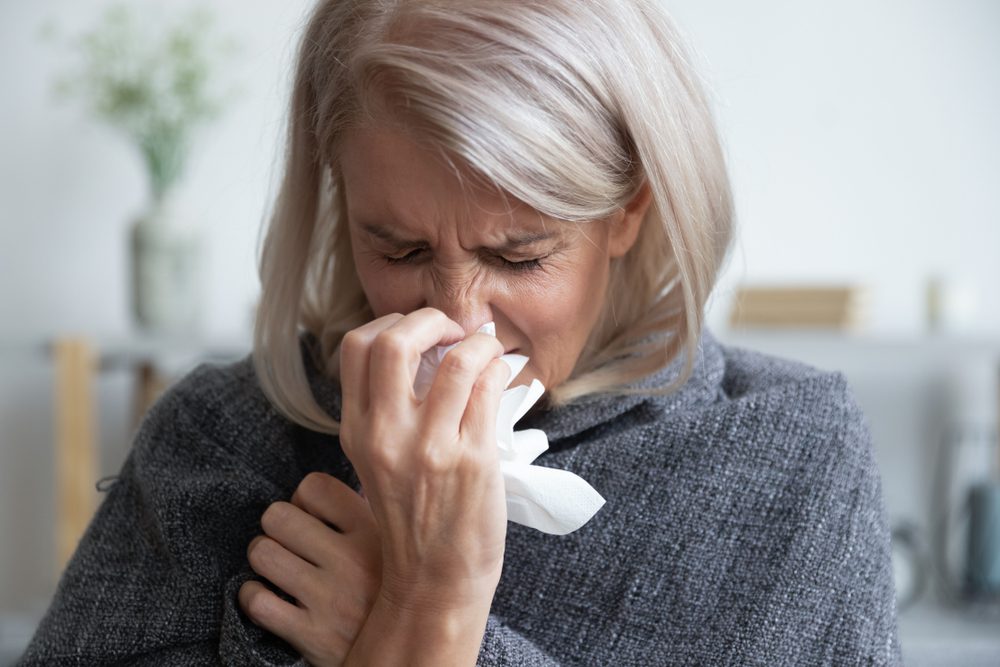Hand sanitizers have probably never been as popular as they are now, after the pandemic.
As we all already know, any hand sanitizer with an alcohol concentration of 70% or more can kill the SARS-CoV-2 virus, as well as other dangerous viruses and bacteria.
It’s accessible, affordable, and keeps us healthy, but what if we end up using too much of it?
Surprising as it may seem, you can use too much hand sanitizer (the pandemic has confirmed to us!)—and it can have devastating consequences.
Apart from destroying viruses and harmful bacteria, hand sanitizers also kill our hand microbes, the good bacteria that protect our skin and keep us healthy.
Although researchers have yet to figure out the ideal quantity of hand sanitizer we should use, here are 13 unexpected times you should not utilize this product.
You’ve been exposed to chemicals
Hand sanitizers should theoretically clean everything, right?
Well, few people know that using this product shortly after handling chemicals such as heavy metals or pesticides can do much more harm than good.
In fact, the Center for Disease Control and Prevention (CDC) found that people who use hand sanitizer after chemical exposure have increased levels of pesticides in their bodies (compared to those who don’t sanitize their hands).
Right now, research is still being conducted to determine which chemicals are more dangerous. However, one thing’s for sure: always wash your hands using soap and water to get rid of chemicals and stay healthy.

You’ve handled raw meat
There’s no doubt about it: preparing raw meat requires clean hands. But what about cleaning them afterwards?
Some people (especially workers from the food industry) are using hand sanitizer after touching raw meat, thinking they can get rid of its bacteria and grease better.
Unfortunately, things don’t work that way. In fact, the CDC points out that all the grease found on meat (especially fish) reduces the efficiency of hand sanitizers significantly.
Once again, the best practice after handling raw meat is to simply wash your hands using plain soap and water.
Washing your hands excessively? Find out how to keep your skin healthy right here.
You have just used the bathroom
If using public toilets wasn’t unpleasant enough, this practice is even scarier now, after we lived with the pandemic for a few years.
This is probably one of the dirtiest public places you may come across, and you should definitely avoid it as much as possible. For those times you just have to go, though, simply using hand sanitizer afterwards isn’t enough to scare all the germs away.
According to Dr. David Coil, Ph.D., and microbiologist at the UC Davis Genome Center, ‘hand sanitizers are probably not great for your skin; they lead to resistance; they create a false sense of security; and they displace soap and water, which is preferable anyway.’
Just as the CDC experts recommend, washing your hands thoroughly with soap and water is the safest way of eliminating the nasty microorganisms in public bathrooms.
You have just sanitized your hands
Nowadays, more and more people acknowledge the importance of using hand sanitizer.
For some, though, this safety practice has quickly turned into an addiction—one that may be more dangerous than they think!
In short, the more hand sanitizer you use, the more you’ll harm your skin. Using this product excessively can lead to dry skin and might even cause irritation or cracks that actually increase the risk of germ or virus infections.
Therefore, using hand sanitizer every five minutes isn’t such a clever idea after all. Ideally, you should use this product every time you’ve been exposed. The CDC recommends rubbing the sanitizer all over your hands until they’re completely dry, which can take up to 20 seconds.
You’re grocery shopping
For most of us, going to the supermarket used to be one of the riskiest activities in terms of COVID-19 exposure. Today, we still need to be careful when shopping because we can easily expose ourselves to dangerous viruses and bacteria. Public health authorities have been recommending sanitizing your hands after each shopping session, which is great advice (not only against COVID-19 but also against other germs and pesticides found on fruits, veggies, and other products).
However, using hand sanitizer multiple times while in the grocery store might actually increase your skin’s sensitivity and dryness.
As a rule of thumb, it’s advisable that you sanitize before entering the grocery shop and right after finishing your session. If you’re still concerned about exposure, you can wear special gloves to make sure you don’t come in contact with any viruses.
You haven’t touched anything
As I was saying earlier, using hand sanitizer can easily become an addictive habit. Our desire to stay healthy can make us over-sanitize our skin without even realizing it (until it’s too late).
Many people are now sanitizing their hands even if they haven’t touched anyone or anything in the meantime; the habit is already in their subconscious, so they might not even be aware of it.
According to Dr. Coil, overusing sanitizers actually helps some bacteria evolve to the point where they become resistant to it.
One study, for example, ‘showed that those bacteria have become more resistant over time, and even tested the relevance of that finding in mice. It’s really not surprising: Bacteria can, and have, evolved to develop resistance to pretty much anything.’
However, we should remember that there are plenty of other harmful germs, bacteria, and viruses from which we must protect ourselves again.
Somebody is throwing up
When somebody in your household gets nauseous and starts throwing up, what are your first thoughts?
Most people would assume they had eaten something bad, in which case some rest and green tea will solve the situation easily.
But in some cases, it can also be norovirus, a virus that can cause extreme vomiting, diarrhea, and other unpleasant digestive symptoms.
The worst part? Hand sanitizers can’t kill it.
Therefore, if you’re taking care of a household member who’s exhibiting these symptoms, always wash your hands using soap and water since this is the only way of truly keeping yourself safe.
You CAN wash your hands
If your job requires spending 8 hours a day at the desk, using hand sanitizer definitely seems easier than getting up and going to the bathroom to wash your hands with soap and water.
However, experts say it’s totally worth the effort.
Unlike hand sanitizers, hand washing can physically kill bacteria, bugs, and viruses and wash them down the drain.
Sure, sanitizing can also keep you safe, and you should definitely use it if you’ve been exposed to public surfaces or other people, but only if there’s no sink nearby.

Someone coughs next to you
If you’re in a public place and a stranger coughs or sneezes right next to you, you might instinctively take out your hand sanitizer as a defense.
Unfortunately, though, it might not help that much in this case. Why? Well, first of all, you haven’t touched anything, and that person didn’t cough or sneeze in your hand.
When somebody talks, sneezes or coughs nearby, they eliminate tiny droplets that travel through the air; as you may know, that’s the very reason why we’ve been wearing face masks for over a year.
Unless you and the sneezer are both wearing masks correctly, so they cover the mouth and nose and are made of truly protective materials, some of these air droplets can still get to you.
On your kids
Of all the age groups, children are least likely to adopt all safety measures, such as keeping the recommended distance or avoiding commonly touched surfaces.
Unfortunately, alcohol-based hand sanitizers can have a negative impact on children too if used excessively. How?
Dr. Graham Snyder, MD, medical director of infection prevention at UPMC, explains that inhalation or ingestion of alcohol-based sanitizers can lead to toxicity and internal injuries in children.
In fact, a quick look at the pre-pandemic statistics shows that the U.S. Poison Control Centers have received more than 85,000 calls related to hand sanitizer exposures in small children between 2011 and 2015.
However, researchers haven’t found any evidence that applying hand sanitizers to children’s hands is harmful if applied correctly and moderately.
Tips on staying safe
If there’s one thing we should remember after reading this article, it’s this:
Hand washing always beats hand sanitizers!
Nevertheless, you should always carry a hand sanitizer with you every time you go to a public place and use it if you don’t have the possibility of washing your hands with soap and water.
Even when you do wash your hands, remember the CDC rule of washing them for at least 20 seconds to make sure you eliminate all the harmful bacteria and viruses.
Although most people are still worried about COVID-19, there are still many other diseases we have to stay away from.
You should also check out: Do You See These 13 Worrying Signs When You Look in the Mirror?













